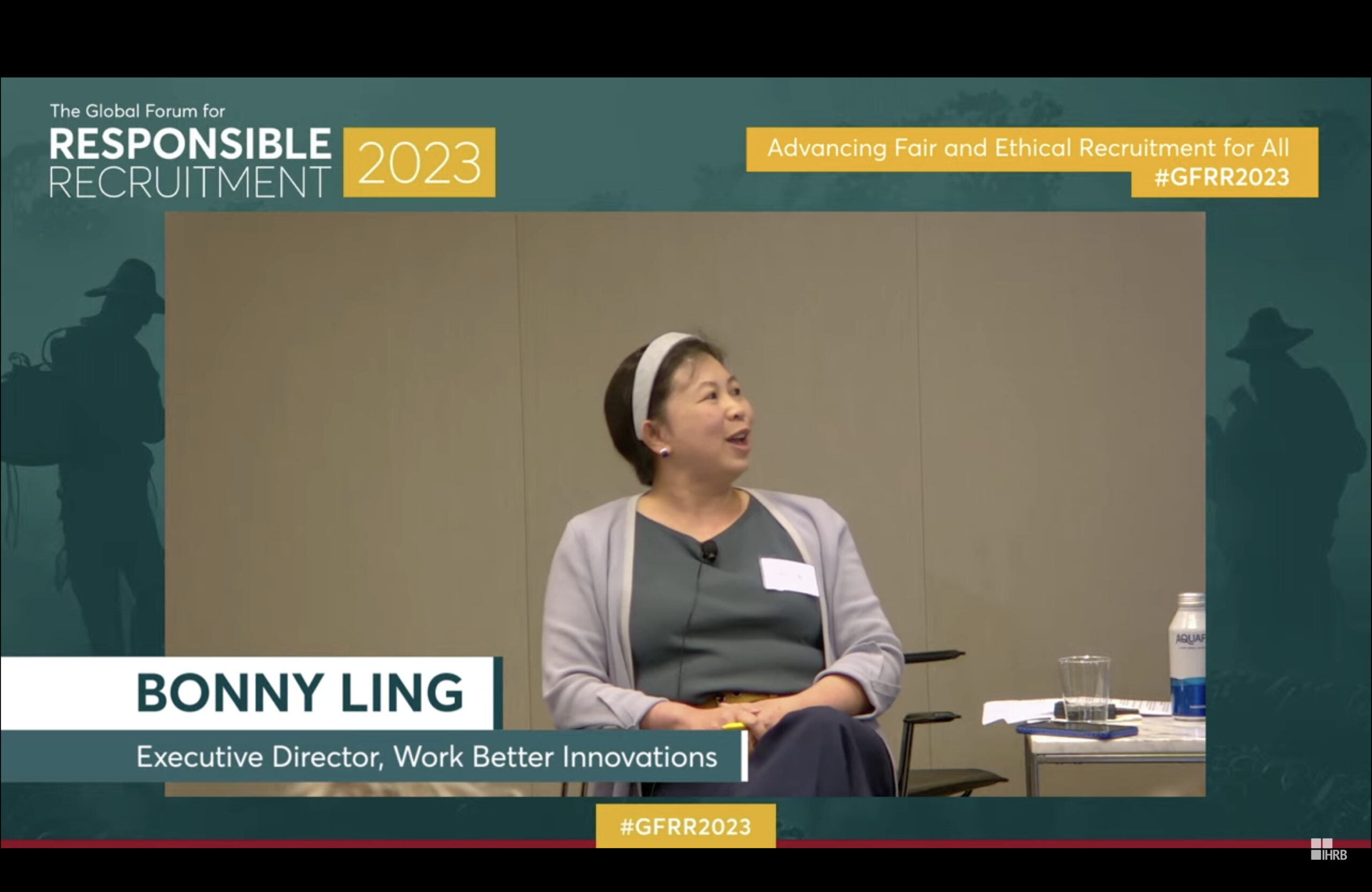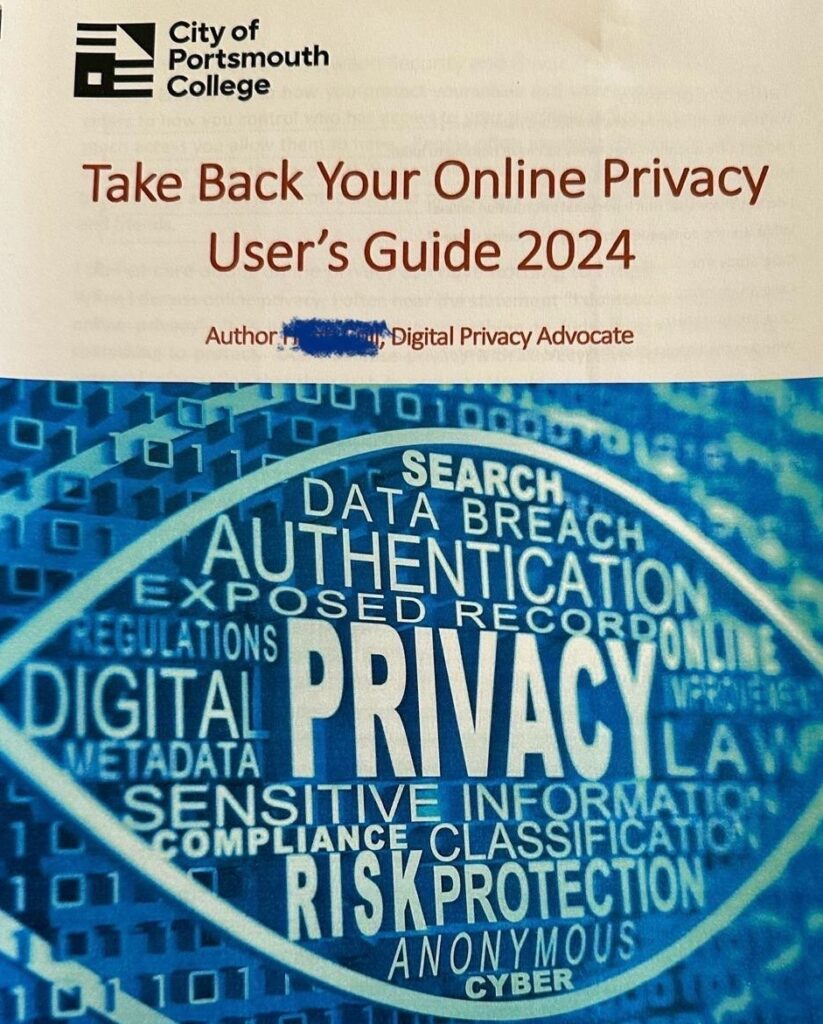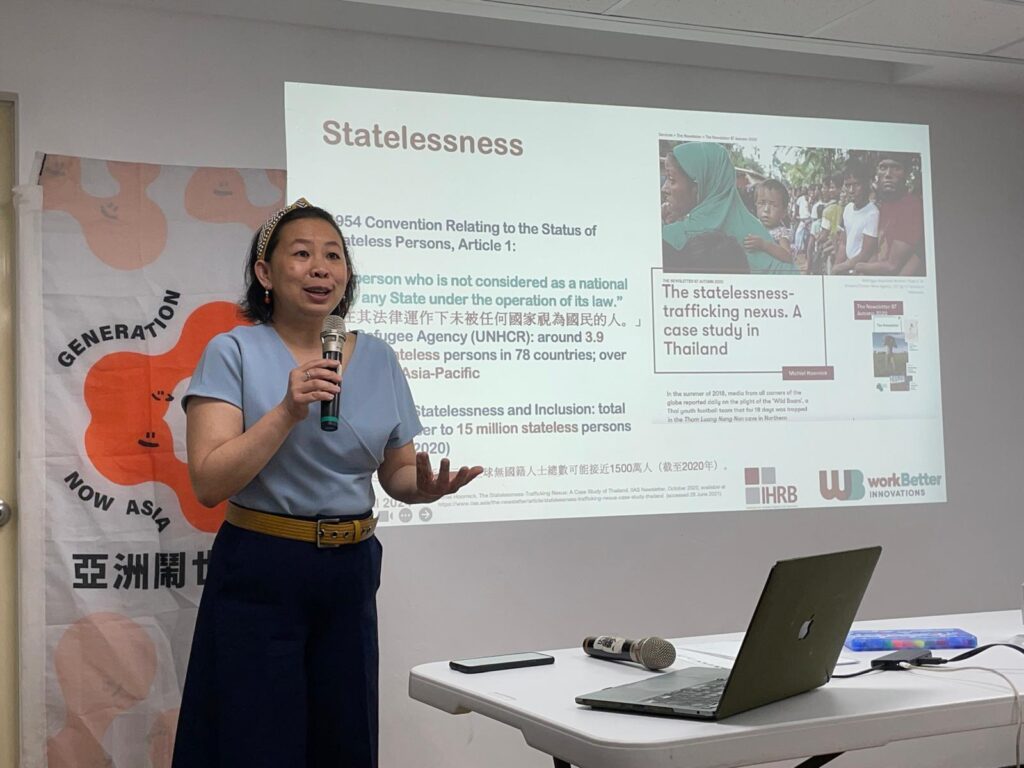20 June 2023. Last week our director Dr Bonny Ling was at the Global Forum for Responsible Recruitment in New York and represented WBI as a contributing partner. She is also a Research Fellow at the Institute for Human Rights and Business. On Day 2, she moderated the “Due Diligence in Shipping & Ports” panel, the second of a two-part discussion about protecting seafarers in the global economy.
According to the International Chamber of Shipping, “the international shipping industry is responsible for the carriage of around 90% of world trade.”
With nearly 2 million seafarers recorded globally, the role they play in keeping the world’s economy afloat (literally) cannot be denied. Nevertheless, seafaring is also the profession vulnerable to risks of exploitation, ill-treatment and infringement of workers’ rights.
“Law of the Sea is typically not an easy law class – where you have different overlapping jurisdictions (port, flag and territory), plus the nationality of the seafarer, ships that can be divided and bought up by different people, ports that are divided and owned by different people. So, I think that is a barrier, trying to understand how complicated the maritime sector is.” – Dr Bonny Ling.
The first part of the discussion “Seafarers and Recruitment Fees- What are the Risks?” was moderated by Francesca Fairbairn, the Shipping and Commodities Manager at IHRB, offering a comprehensive look at the background on seafarers, rights protection issues and recruitment patterns in the merchant navy.
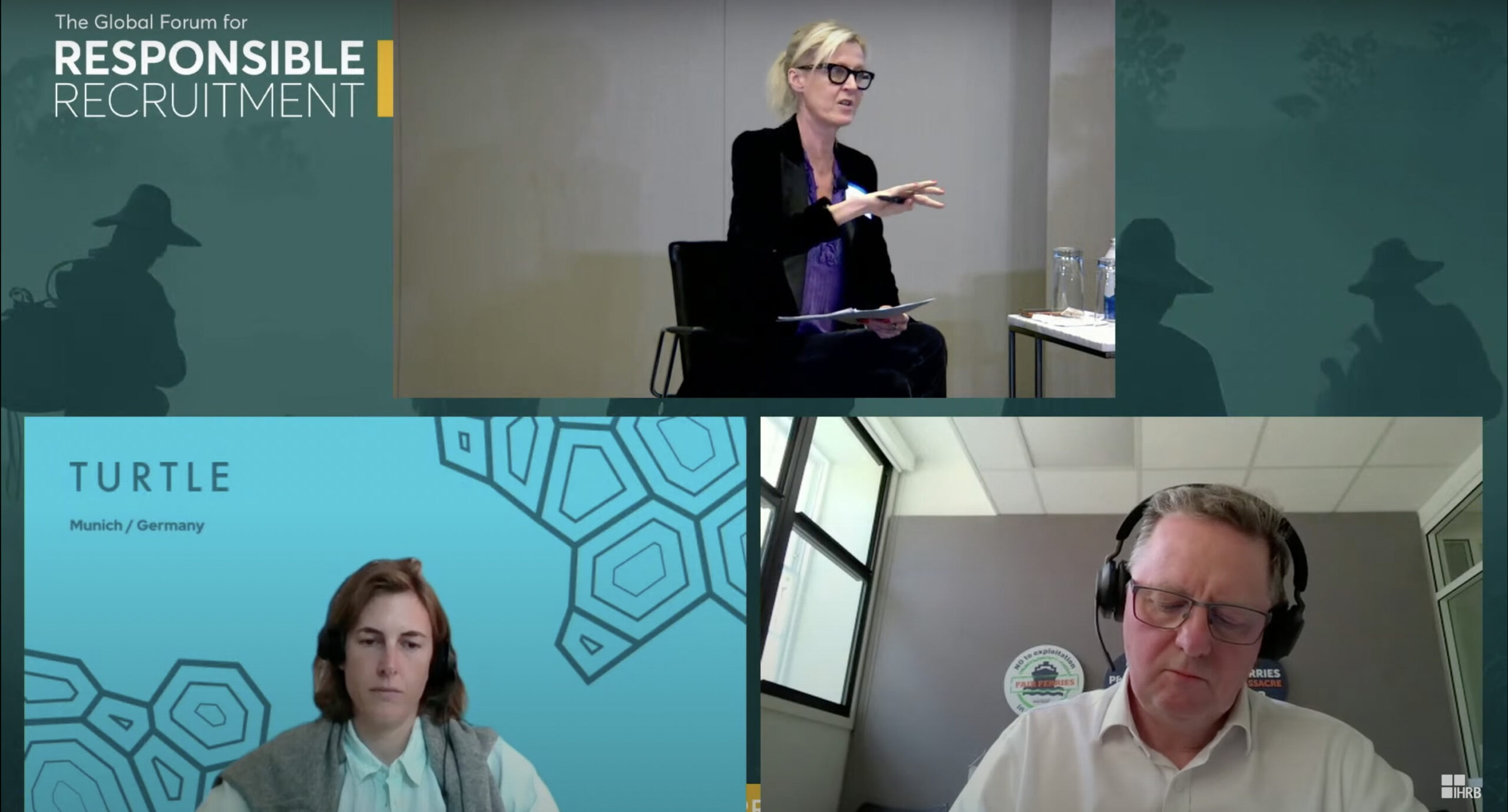 [From top to right: Francesca Fairbairn, Isabelle Rickmers and Mark Dickinson. Screenshot – IHRB’s Livestream]
[From top to right: Francesca Fairbairn, Isabelle Rickmers and Mark Dickinson. Screenshot – IHRB’s Livestream]
During the discussion, the charging of recruitment fees was outlined as the main factor associated with corruption.
The corruption, as noted by Isabelle Rickmers, CEO and Founder of Turtle, could take many forms, including debt bondage, being charged for a non-existent job, or paying for one’s own training.
The Maritime Labour Convention (MLC) also recognizes the direct link between recruitment fees and incidents of corruption. Charging recruitment fees is strictly outlawed by the MLC, also informally known amongst the seafarer community as ‘The Seafarers’ Bill of Rights’.
However, as Mark Dickinson, General Secretary of Nautilus International, pointed out: there is a loophole in the MLC whereby that seafarers bear responsibility for their own travel documentation, based on customary practice.
Another poignant example of corruption was provided by Ben Bailey, the Director of Programme for The Mission to Seafarers:
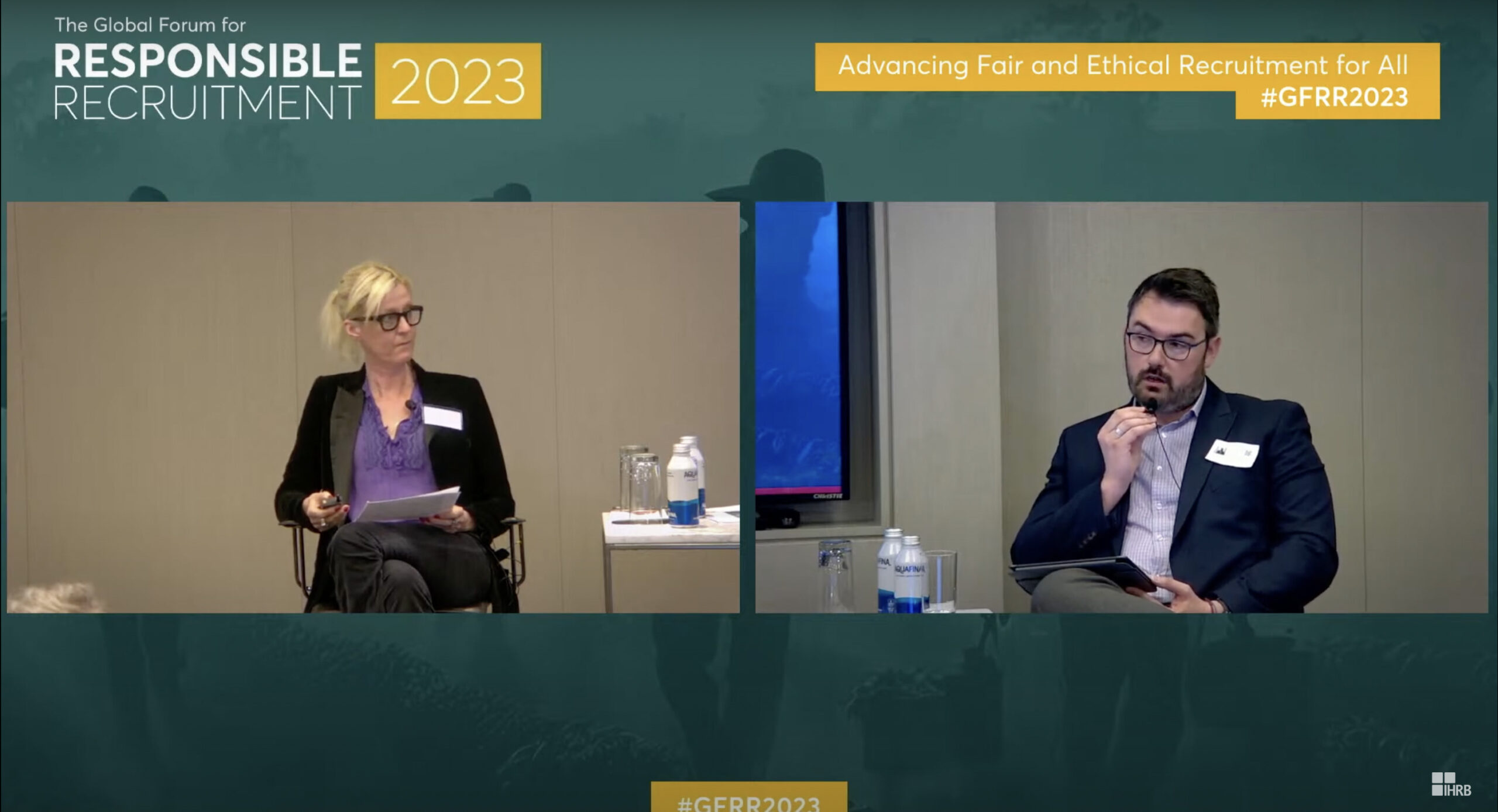 [Francesca Fairbairn & Ben Bailey. Screenshot – IHRB’s Livestream]
[Francesca Fairbairn & Ben Bailey. Screenshot – IHRB’s Livestream]
“Seafarers will tell us that, when they go looking for a job they are told ‘you need to pay this additional recruitment fee, otherwise your application will go to the bottom of the pile.” – Ben Bailey.
Although 97% of the world’s commercial fleet is signed up to the MLC, effectively committing to the protection of seafarers’ human and labour rights, there are still geographical gaps where seafarers are exposed to illegality.
“We are also increasingly finding seafarers, who say that their documentation is being kept by the agent as to prevent them from finding alternative employment.” – Ben Bailey
Furthermore, as pointed out by the panel, some of the registered ports lack the necessary resources for the enforcement of the MLC.
So… How can the situation be improved?
This question was addressed in part II of the discussion “Due Diligence in Shipping & Ports – How to Manage the Risks,” chaired by Dr Bonny Ling and featuring presentations by speakers from UN Global Compact, RightShip, and Impactt.
As unequivocally put by Doug Nystrom, Associate Director for Impactt for North America, there has not been enough attention given to the maritime sector from human rights due diligence perspective, an astounding fact considering its major significance in global trade.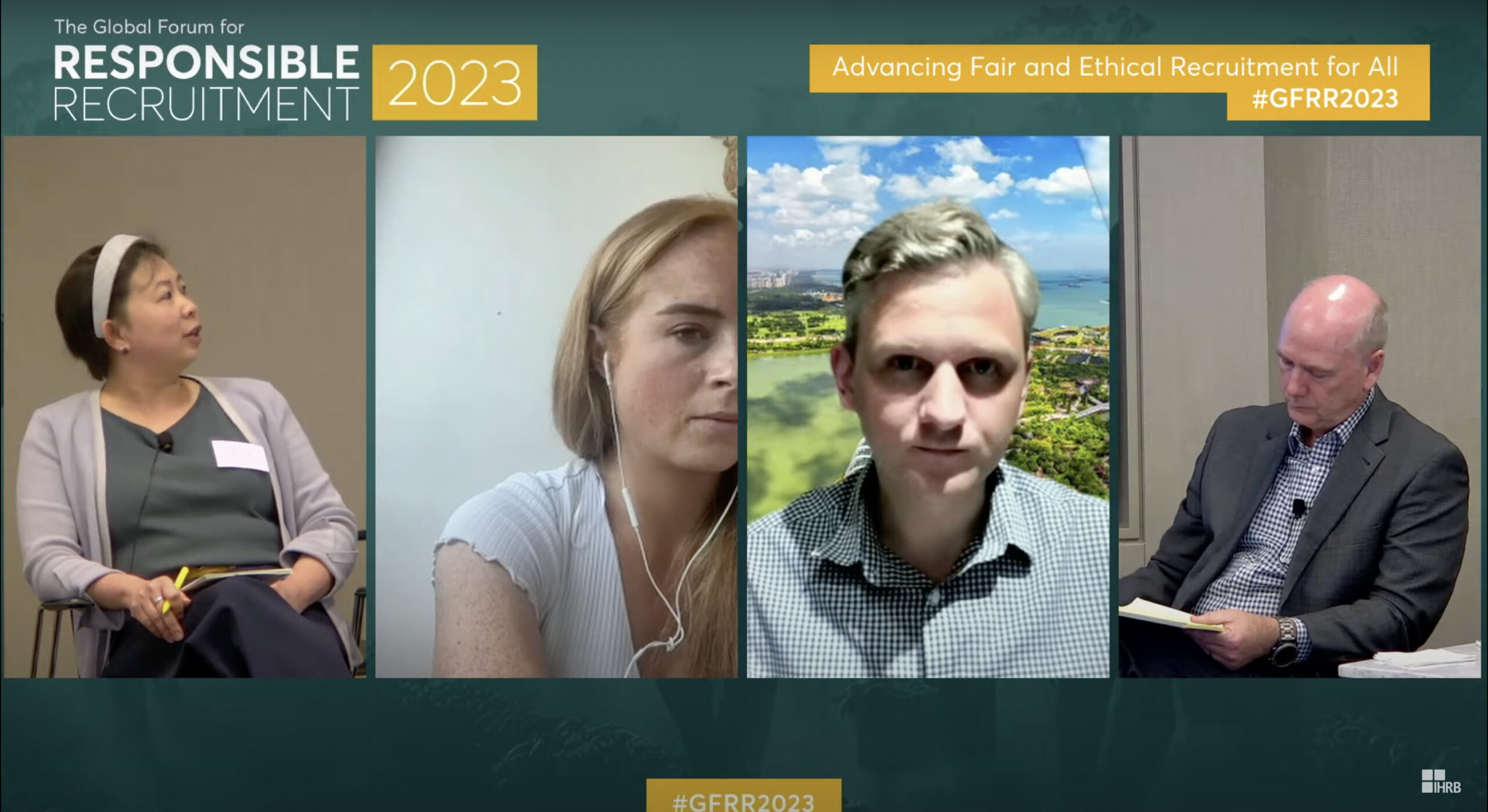 [From Left to Right: Dr Bonny Ling, Martha Selwyn, Christopher Saunders & Doug Nystrom. Screenshot – IHRB’s Livestream]
[From Left to Right: Dr Bonny Ling, Martha Selwyn, Christopher Saunders & Doug Nystrom. Screenshot – IHRB’s Livestream]
This is, however, starting to change for the better as more companies, i.e. cargo-owners and charterers, are increasingly using their financial leverage to ensure maritime commercial actors operate in line with international human rights standards.
The change can be partly attributed to the Crew Change Crisis – a large-scale humanitarian crisis which occurred during the COVID-19 pandemic. It affected approximately 300,000 seafarers, who sometimes were left without food, water and fuel supplies on board vessels, awaiting crew replacement, for sometimes as long as 17 months, when the MLC cap is at 11 months.
Martha Selwyn, the Ocean Manager for the UN Global Compact, discussed how the crisis was exacerbated by lack of awareness on part of merchant companies, which in turn highlighted the need for stronger business advocacy for the rights of seafarers.
“Our ‘Call to Business Action’ called on companies across the global supply chain to conduct human rights due diligence in this instance of crisis and utilise their leverage on governments and on the maritime transport providers…and offering concrete practical guidance in how to do it.” – Martha Selwyn
Via a Human Rights Due Diligence (HRDD) tool, businesses have now access to practical guidance regarding concrete actions they can take in order to regulate their supply chain, including the transportation links on board of shipping vessels.
Ship-owners, managers and operators are increasingly incentivized to review and improve their standard practices thanks to another tool developed by RightShip in collaboration with Sustainable Shipping Initiative(SSI) and IHRB.
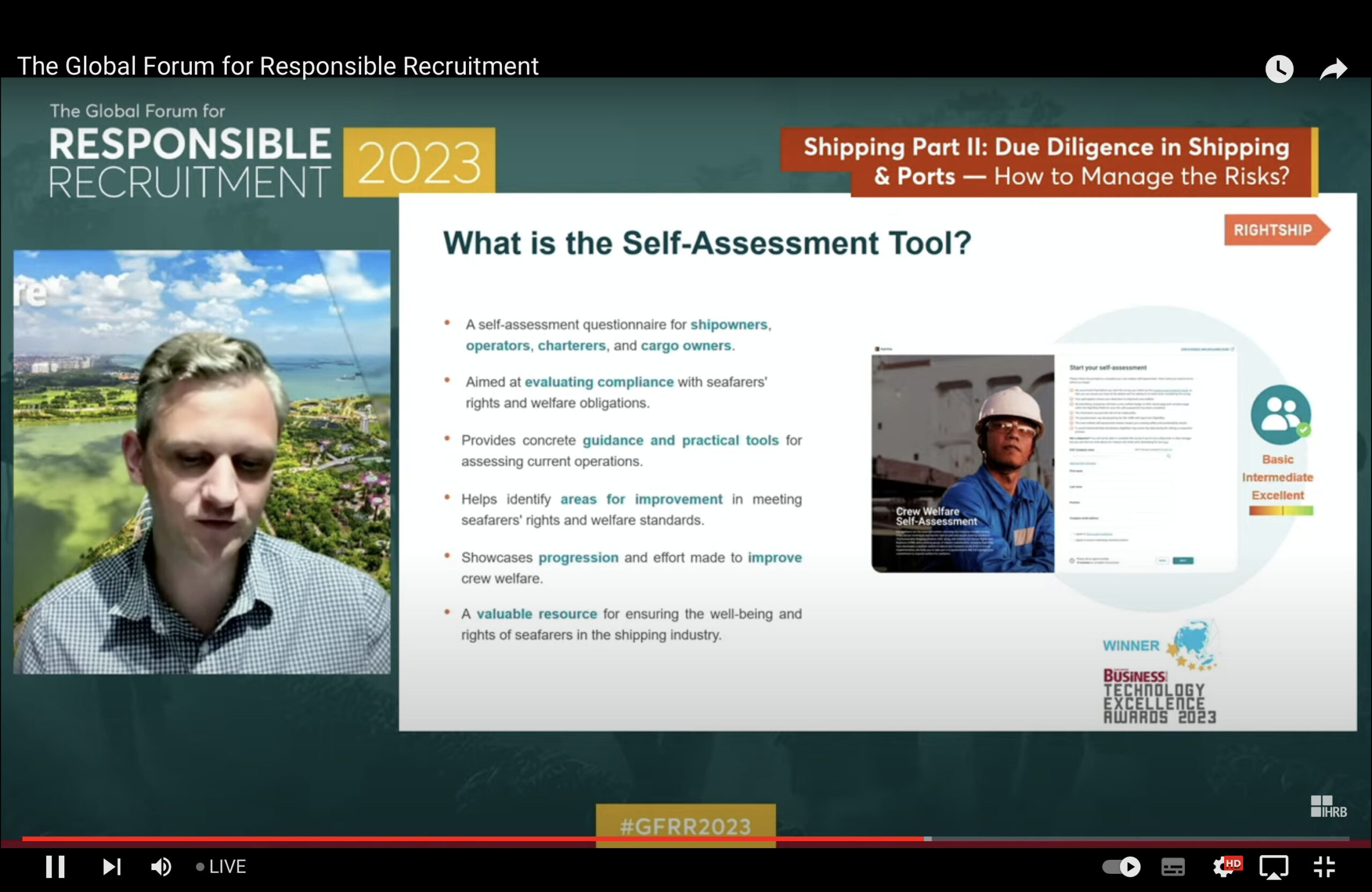 [Christopher Saunders’ presentation on RightShip’s Self-Assessment Tool. Screenshot – IHRB’s Livestream]
[Christopher Saunders’ presentation on RightShip’s Self-Assessment Tool. Screenshot – IHRB’s Livestream]
The Crew Welfare Self-Assessment Tool, as Christopher Saunders, the Chief Product Officer explained, allows for the search of any vessel or company across its data system, thus increasing transparency through better access to information on crew welfare. Next iteration of the tool will go beyond self-reporting to address issues of verification and transparency.
It was a real honour for WBI to take part as a contributing partner this year and to play a part in bringing the issue of responsible recruitment alongside migrant workers’ voices to the forefront of the global agenda.
As WBI’s director Dr Bonny Ling said:
“The human element tends to feature very weakly in international discourses on ocean governance and we need to change that.”
For more information, go to www.gfrr.org. All GFRR 2023 sessions are recorded and can be viewed here.

